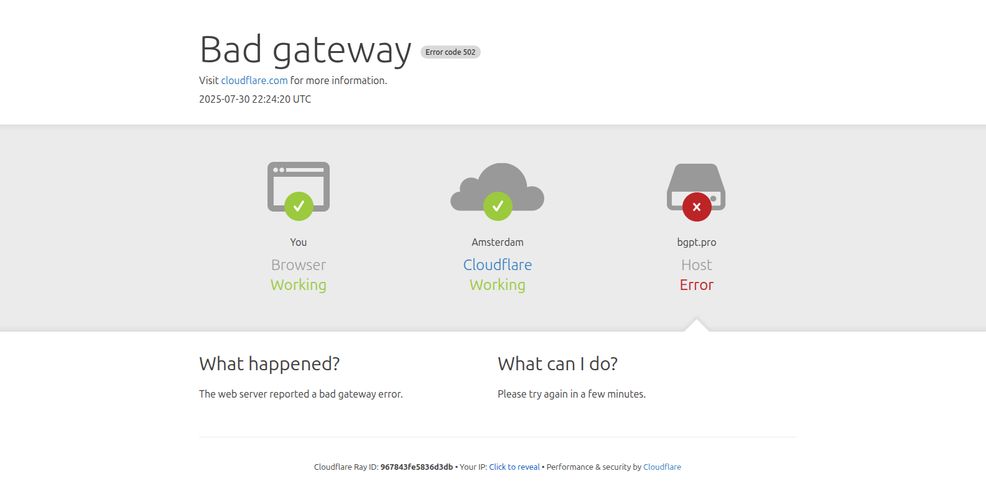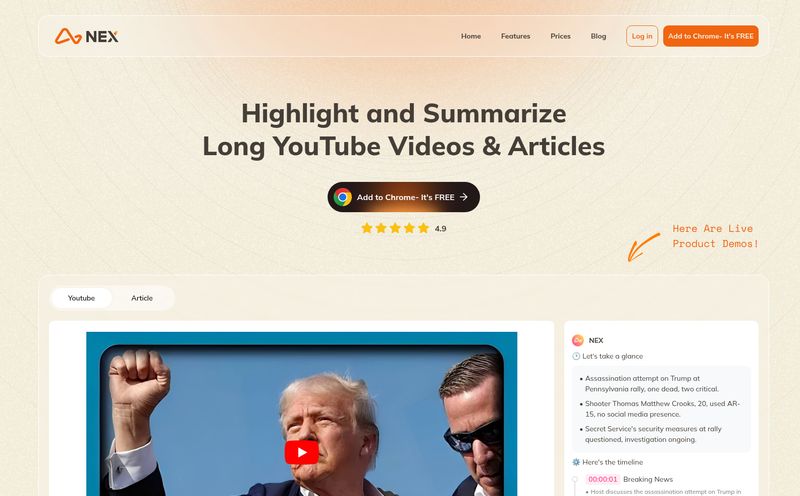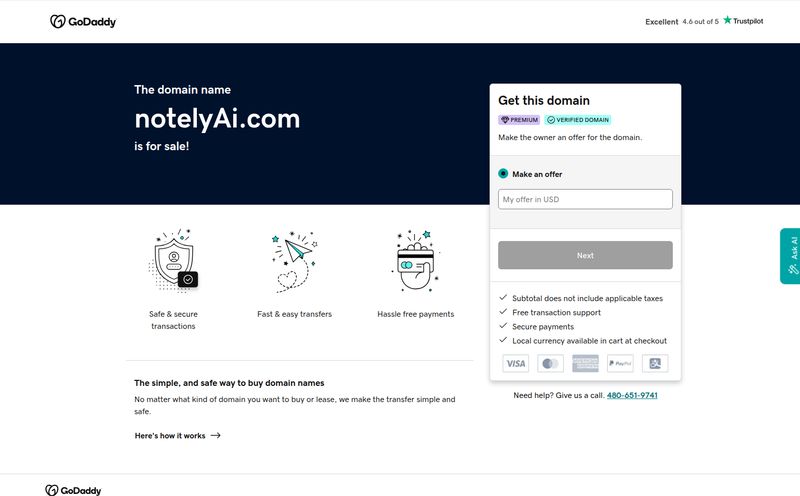If you've ever worked in business development, competitive intelligence, or as an analyst at a law firm, you know the grind. It's the endless dance of a dozen browser tabs, wrestling with data from your CRM, financial reports, news articles, and that one obscure industry database your company pays a fortune for. You spend hours—no, days—manually compiling all this stuff into a single, coherent report. By the time you’re done, you're drowning in data and the opportunity might've already sailed.
It's what I like to call “copy-paste hell.” We’ve all been there. It's a soul-crushing part of the job that makes you wonder if you’re a high-level strategist or just a very expensive data entry clerk.
So when I came across a tool called MindPeer, which claims to automate this whole messy process using AI, my interest was definitely piqued. A product by Mind Alliance and apparently trusted by big-name law firms like Eversheds Sutherland and Fragomen? Okay, you have my attention. But is it just another fancy SaaS with a slick landing page, or does it actually solve the problem? I decided to dig in.
What is MindPeer, Really? Beyond the Marketing Spiel
At its heart, MindPeer is an AI-powered B2B research system. Think of it as a hyper-intelligent research assistant. Its main job is to pull together all the scattered pieces of information your firm has about a client or a target company—both internal knowledge and external data—and whip it into a customized, easy-to-read report. Effortlessly, or so they claim.
The primary audience seems to be law firms looking for a competitive edge in business development. But honestly, I see its value for anyone doing serious due diligence, investment research, or corporate strategy. It’s for anyone whose job depends on knowing everything there is to know about another company, fast.
It's not trying to be a data provider itself. That’s a key distinction. It's a consolidator, a translator, a storyteller that takes all your disparate data sources and makes them talk to each other. A noble goal, for sure.
The Core Features That Actually Matter
A tool is only as good as its features, right? Here’s what stood out to me from MindPeer’s offerings.
Taming the Data Beast: Integration and Normalization
This is the big one. MindPeer connects to both your internal systems (think Salesforce, internal documents, financial systems) and a whole host of external data providers. You know, the usual suspects in market intelligence and news. But here’s the magic trick: it doesn’t just pull the data; it cleans and normalizes it.
Anyone who has tried to merge a spreadsheet from marketing with a data export from finance knows what a nightmare this can be. Different formats, weird labels, duplicate entries... it's chaos. MindPeer acts like a universal translator, taking all that messy, unstructured information and putting it into a consistent format. This is a genuinely huge time-saver and, frankly, a headache-reducer of epic proportions.
The End of Report-Building Drudgery: Automated Reporting
Once the data is wrangled, MindPeer gets to its main event: generating the report. This is where the automation really kicks in. Instead of you spending half a day copy-pasting charts and summaries, the system does it for you based on pre-set templates.
And these aren't just rigid, one-size-fits-all reports. The platform includes customizable templates and a WYSIWYG (What You See Is What You Get) editor. This means you can design your firm’s ideal client profile or competitive analysis report once, and then generate it on-demand for any company you're researching. It’s about creating a repeatable process that maintains quality and branding without the manual labour. Huge win.

Visit MindPeer
From Data Points to Actionable Strategy
The goal isn't just to get a fat document filled with numbers. It's to get intelligence. The whole point is to have a comprehensive overview that helps you spot opportunities, understand risks, and walk into a meeting feeling like the smartest person in the room. By automating the low-value assembly work, MindPeer frees up analysts and partners to do the high-value work: thinking, strategizing, and building relationships.
My Honest Take: The Good, The Bad, and The API Costs
No tool is perfect. As an SEO and traffic guy, I've seen my share of platforms that promise the world and deliver a small island. So, let’s get real about MindPeer.
Where MindPeer Shines (The Wins)
The most obvious advantage is time. The hours saved on manual research are almost incalculable for a busy firm. This time can be reinvested into more client-facing activities or deeper strategic analysis. It empowers your team to move from being data gatherers to actual insight providers. The quality and consistency of the reports also get a major boost. Every client brief looks the same, contains the same core data points, and is always up-to-date. That kind of professionalism matters.
I also love that it consolidates firm knowledge. It breaks down those pesky information silos where one partner knows something critical about a client, but that knowledge lives only in their email or a private note. By integrating internal sources, MindPeer creates a single source of truth. Pretty powerful stuff.
A Few Things to Keep in Mind (The Reality Check)
Okay, now for the other side of the coin. First, and this is a big one, the MindPeer subscription does not include the cost of the data source APIs. Let me say that again. If you want to pull in data from premium external sources, you still need to pay for those subscriptions separately. MindPeer is the engine, but you have to provide the fuel. This is a critical budgeting consideration and something you need to be crystal clear on before signing up.
Second, this isn't a magic button you press on day one. There's an initial setup phase. You have to configure your integrations and customize your report templates. It requires some upfront investment of time and thought to get it working just right for your firm's specific needs. It's not a flaw, just the reality of implementing a powerful system.
Finally, your reports are only as good as the data you feed into them. If your internal CRM data is a mess, or if your external data provider has inaccuracies, MindPeer will reflect that. Garbage in, garbage out, as they say. The tool can normalize formats, but it can't fact-check the world.
Who is MindPeer Actually For?
While the homepage screams "law firms," and that's clearly their sweet spot for business development and competitive analysis, the application is broader. I could easily see this being a game-changer for:
- Investment Banking & Private Equity: For rapidly producing M&A target profiles and performing due diligence.
- Corporate Strategy Teams: For monitoring competitors, suppliers, and potential partners.
- Management Consulting: To quickly get up to speed on a new client’s industry and competitive landscape.
Essentially, if your team's success hinges on creating deep, multi-source company profiles on a regular basis, MindPeer should be on your radar.
What's the Damage? A Look at MindPeer's Pricing
If you're looking for a pricing page with neat little tiers, you wont find one. MindPeer operates on a "Book a Demo" model. This is super common for enterprise-level B2B software, and it makes sense. The cost will likely depend on the number of users, the complexity of your integrations, and the level of support you need. It’s not a one-size-fits-all product. While I always prefer transparent pricing, I get why they do it this way. Your best bet is to schedule a demo and get a custom quote.
Final Thoughts: Is MindPeer Worth It?
So, what's the final verdict? I'm genuinely impressed with the problem MindPeer is solving. It targets a very real, very expensive pain point in the professional services world. It's not just another AI gimmick; it's a well-thought-out system designed to bring efficiency and power to B2B research.
It's not for everyone. A small freelancer or a tiny firm might find the investment (both time and money) to be too steep. But for a mid-to-large size law firm, consulting group, or financial institution? I think the ROI in terms of time saved and opportunities won could be massive. It’s a tool that allows your smartest people to spend more time being smart.
If you're tired of living in copy-paste hell and want to turn your firm’s data chaos into a clear competitive advantage, then booking a demo with MindPeer seems like a very, very good use of your time.
Frequently Asked Questions about MindPeer
- Do I still need my subscriptions to external data providers?
- Yes, absolutely. This is a critical point. MindPeer integrates with data sources via their APIs, but you are responsible for the subscription costs of those providers. Think of MindPeer as the sophisticated kitchen, but you still have to buy the groceries.
- How secure is MindPeer with sensitive client data?
- According to their site, they take security and compliance seriously, which is a must when dealing with law firms. For specifics on their security architecture, certifications, and data handling policies, you'd want to address this directly during a demo.
- Can I fully customize the reports to match my firm's branding?
- Yes. MindPeer features a WYSIWYG editor and customizable templates, allowing you to control the layout, content, and branding of the reports to meet your firm’s specific standards.
- Is MindPeer only useful for law firms?
- While law firms are a primary target market, its functionality is valuable for any organization that relies on in-depth B2B company research. This includes investment banks, private equity firms, management consultants, and corporate strategy departments.
- How long does the initial setup take?
- This will vary depending on the complexity of your needs. It's not an instant-on tool. You'll need to work with their team to connect your internal and external data sources and configure your initial report templates. It's an implementation project, not just a software install.
- Does MindPeer generate the insights or just the data?
- MindPeer automates the collection, normalization, and presentation of data to create what they call "actionable intelligence." It does the heavy lifting to surface the key information in one place, which allows human analysts to generate the final strategic insights much faster.
Reference and Sources
For the most direct and updated information, please refer to the official sources:
- MindPeer Official Website: https://www.mindpeer.com
- Mind Alliance (Parent Company): https://www.mind-alliance.com
- MindPeer on LinkedIn: https://www.linkedin.com/showcase/mindpeer/



